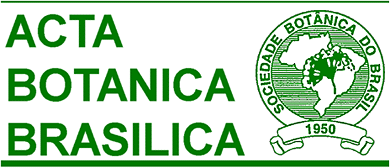The evaluation of the post-germination phases of plants allows the recognition of transitional structures that support the relationships among taxa and their establishment. Together with fruit and seeds, seedlings and saplings provide useful characters for identifying many species. This study aimed to describe and characterize the morphology of the fruits, seeds, seedlings and saplings of Macrolobium acaciifolium, M. bifolium and M. pendulum, as well as to evaluate the ecological, taxonomic and phylogenetic value of the structures identified. In this work, the seeds were sown in plastic trays with sterilized sand and sawdust, without pre-germination treatment. The fruits of the three species are woody legumes, dehiscent fruit or indehiscent fruit. The seeds have seed coats with or without venation and variable embryos, with plumules differing among the three species; this trait can be helpful in distinguishing among the species studied. The seedlings are of the cryptocotylar-hypogeal-reserve or phanerocotylar-epigeal-reserve type. Macrolobium bifolium and M. pendulum are similar species, differing in only a few characters. These characters have taxonomic value and aid species identification. The characteristics of M. pendulum are described here for the first time.
Detarieae; embryo; Fabaceae; plumule; post-germination development







